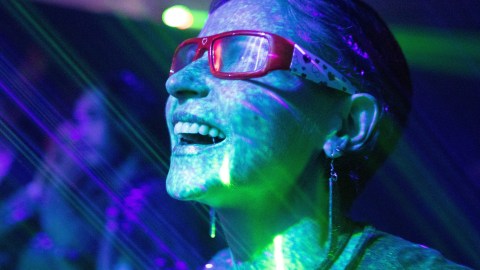Study finds microdosing psychedelics can be beneficial, but not in the way that users most expect

What if you could take a psychedelic drug regularly in such tiny quantities that the immediate effects were not discernible, yet over time it led to a range of psychological benefits, especially enhanced focus and heightened creativity?
That’s the principle behind “microdosing” – a controversial technique that’s exploded in popularity ever since the publication of a 2011 book The Psychedelic Explorers Guideand a 2015 Rolling Stone article titled How LSD Microdosing Became The Hot New Business Trip. Large online communities of microdosing enthusiasts have since emerged on sites like Reddit, where dosing tips are shared and the supposed manifold benefits of the practice are espoused.
However, actual scientific investigations into the effects of microdosing can be counted on one hand. Earlier this year, PLOS One published one of the few systematic investigations ever conducted into the practice, by Vince Polito and Richard Stevenson at Macquarie University. Though exploratory and tentative due to “legal and bureaucratic” obstacles (meaning there was no placebo control or randomisation in this research), the results suggest that microdosing can be beneficial, although not in the ways that users most expect, and not necessarily for everyone.
The researchers recruited hundreds of volunteers from Reddit.com/r/microdosing and other online psychedelic groups (people with mental health problems were asked not to take part). The participants completed a comprehensive battery of questionnaires at baseline tapping nine domains of functioning including personality, mental health and wellbeing; then for six weeks they reported daily any microdosing they’d engaged in the previous day, and provided brief daily ratings (of how they’d felt the previous day) regarding various psychological measures. Finally, at the study end, they completed the same battery of tests as at baseline.
Sufficiently complete data was obtained from 63 mentally well participants who, during the study, engaged in microdosing of a serotonergic psychedelic (a substance, most commonly LSD or magic mushrooms/psilocybin, that acts on the functioning of the brain chemical serotonin).
In terms of the daily ratings, on days that participants had microdosed, they scored higher than usual across all the measures: connectedness, contemplation, creativity, focus, happiness, productiveness, and wellbeing. However, only focus and productivity showed slight, sustained increases on the drug-free days that followed microdosing. “The pattern of results here is somewhat inconsistent with narrative accounts that claim that the effects of microdosing linger for multiple days,” the researchers said.
On most of the more in-depth battery of measures taken at the study start and end, participants did not show any change. However, they did display reductions in stress, depression and mind-wandering, alongside greater absorption (experiencing intense imaginative experiences and “peak-like altered states of consciousness”). A final change that surprised the researchers was a slight increase in trait neuroticism (i.e. greater emotional instability), which they speculated may have been due to an overall increase in emotional intensity, positive and negative.
That last finding regarding increased neuroticism was reflected in some of the participants’ open-ended descriptions at the study debrief: “…another negative is that all emotions get amplified. So whenever I feel down or not loved the microdose makes it even harder,” wrote one volunteer.
A major drawback of a study such as this, in which participants knew which substance they had taken and there was no placebo group, is that the reported effects may simply have been a result of participants’ expectations or their imagination. To gain insight into this possibility, the researchers conducted a second study with hundreds more participants from online microdosing communities, and this time asked them to say how they thought they would change on the same various psychological measures used in the first study, if they were to microdose for six weeks.
In contrast with the first study’s results, these participants predicted that after six weeks microdosing they would change on all the psychological measures. Although most of their predictions were for change in the same direction as the limited changes that were actually observed in the first study, these participants’ strongest predictions were for increases in creativity, wellbeing and mindfulness (in line with the positive media coverage of microdosing and generally positive chat in online forums), but in fact none of these variables increased over the course of the first study. Also, these participants predicted that neuroticism would decrease, when it actually increased.
The fact that the predictions of participants in the second study did not match the actual reported experiences of those in the first, argues against the experiences of the first group of participants being driven purely by their expectations and hopes. The mostly positive effects reported also chime with the findings from more controlled research of larger doses of psychedelics, which have mostly been positive. However, the researchers also noted that they did not observe a dose-response effect in the first study (there was no correlation between the doses the participants reported taking and the psychological effects), which is surprising, and “is a reason to interpret these findings cautiously,” they said.
Overall, Polito and Stevenson said their tentative findings suggested several “disconnects” between media coverage and anecdotal chat around the effects of microdosing and actual experiences of microdosers as recorded systematically in this research. In particular, effects mostly did not seem to linger on non-dosing days, and the main changes over the course of the study were not in productivity and creativity as is commonly claimed, but “mainly involved reduced mental distress and changes in constructs such as absorption and mind wandering that are not as commonly discussed”.
The researchers said that their “most surprising” finding was the observed increase in neuroticism, especially considered in light of the handful of open-ended descriptions of negative experiences. “In a context of considerable hype around the practice of microdosing, particularly with regards to its potential as a business tool, it is important to acknowledge that microdosing may not be universally beneficial,” the researchers said.
—A systematic study of microdosing psychedelics.
Christian Jarrett (@Psych_Writer) is Editor of BPS Research Digest.
Reprinted with permission of The British Psychological Society. Read the original article.





